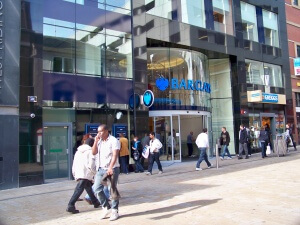Federal Reserve bans former Barclays Global Head of Spot FX Christopher Ashton
The Federal Reserve has banned Christopher Ashton from the industry and fined him $1.2 million for his part in manipulating FX benchmarks, proving that the only way is not Essex

The litigation and personal accountability that is being placed on individual employees of large interbank FX trading departments is continuing, some two years after the regulatory authorities in Switzerland, Britain and the United States declared their simultaneous censuring of six major banking institutions to the tune of a collective $4.2 billion for their part in the manipulation of FX benchmarks.
Subsequent to the regulatory censuring in November 2014, which involved fiscal penalties being administered to six of the world’s largest interbank FX dealers by market share, individual litigation and class action law suits have ensued, as well as criminal prosecutions, largely centering around the misuse of internet chatrooms that are operated via secure messaging services specifically for interbank traders, in which discussions with competitors took place in order to manipulate the market.
Yesterday, the US Federal Reserve issued its verdict against Christopher Ashton, Barclays Bank’s former Global Head of SpotFX, banning him from the industry and administering a $1.2 million fine. Mr. Ashton was suspended from his position in 2013 pending investigation.
His career over, and the price of a moderately sized apartment worse off, Mr. Ashton can consider this a light punishment, as some of his peers will spend the next few years eating porridge at Her Majesty’s Pleasure or on the watch of Uncle Sam, especially when considering that he was a member of “The Cartel” which was a group of traders who ran a chat room for the purposes of exchanging information on rival firms to bend the rates, some of whose members are now serving time.
Mr. Ashton had also been a founder of two prior chat rooms, both with downmarket, used car dealer-esque names “Sterling Lads” and the even more dubious “Essex Express.”
Perhaps “Alright mate, wanna buy a motor?” would be replaced by “Alright mate, wanna bend the benchmarks?” Hardly the stuff of Saville Row’s gentlemen’s clubs.
The Federal Reserve concluded its investigation, stating that Mr. Ashton received a bonus of £380,000 after hitting his annual revenue target in 2010. However, a year later, after joining “The Cartel” group, his bonus rocketed to £725,000, which earned him praise from his employees for delivering “exceptional” trading profits.
Along with other members of the chat group, Mr. Ashton was accused of using code words to conceal trading activity by his clients. By doing so, the prosecutor said, he deliberately broke Barclays’ policy, with the Federal Reserve yesteday having cited his “personal dishonesty” and disregard for his employer.
Whilst Mr. Ashton has been hit in the pocket for almost two years worth of his ill-gotten bonus and banned from the industry, Barclays Bank, his employer, has been engaged in civil litigation as well as a regulatory fine that set it back $342 million in November 2014.









